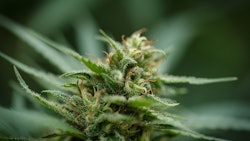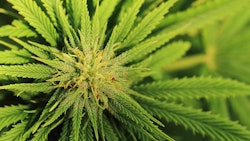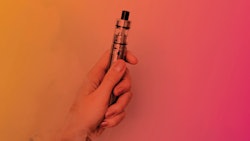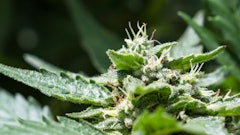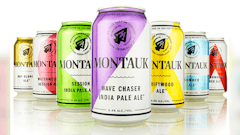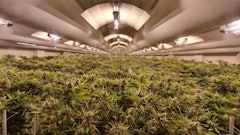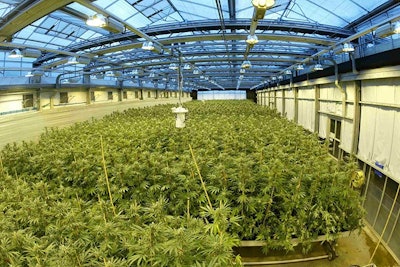
This week, the Drug Enforcement Administration placed Epidiolex, a drug that includes cannabis-derived compounds—specifically, cannabidiol (CBD)—in Schedule V, a far less restrictive oversight category than CBD’s Schedule I classification. Following the drug’s recent approval from the Food and Drug Administration, this news allows Epidiolex to be sold to the public. Manufacturer GW Pharma expects it to be available “within six weeks.”
The DEA move takes a broad look at how the FDA is conducting its business, placing “certain drug products that have been approved by the [FDA] and which contain [CBD] in schedule V of the Controlled Substances Act (CSA),” according to the DEA order. So far, Epidiolex is the only drug that meets those two criteria.
(Read the full DEA document below.)
The news comes at a pivotal time in the cannabis industry: More states are poised to legalize adult-use and medical markets, and the 2018 Farm Bill is on the verge of becoming law and opening the door to industrial hemp cultivation. The hemp-derived CBD market is expected to hit $22 billion by 2022, according to the Brightfield Group.
So, where does the Epidiolex scheduling news fit into the broader industry?
First off: The DEA’s stance does not reschedule CBD.
Under the administration’s 2016 Final Rule, “marijuana extracts,” including CBD, remain in Schedule I. This is regardless of whether the CBD is derived from marijuana (in which case the final product would contain, legally, more than 0.03-percent THC) or hemp (in which case it would contain less than 0.3-percent THC). Whether the DEA changes its stance in the wake of the 2018 Farm Bill vote (and whether that bill passes in the first place) is the subject of much debate.
In fact, the DEA signaled a restrictive outlook in its Epidiolex scheduling announcement: Those FDA-approved drugs that contain CBD must contain less than 0.1-percent THC. (GW Pharma is currently developing Sativex, which contains a 1:1 ratio of CBD and THC, and it’s unclear how the FDA or DEA will approach that drug, if it ever comes across their desks.)
Across the cannabis business, the DEA news this week was met with mixed reactions, defined mostly by cautious optimism about expanded medical access to cannabis.
"There are thousands of years of history documenting the medicinal benefits of cannabis, and it is widely recognized that CBD holds enormous promise for treating diseases and improving health," George Archos, owner of Zen Leaf Dispensaries, tells Cannabis Business Times. "For years, medical science has been clamoring to do cannabis/hemp clinical trials and research under FDA guidelines, but it has been handcuffed by the federal government—until the government allowed this one product through. Continuing to limit it so severely puts U.S. companies at a significant disadvantage against international competitors who are already sharing cannabis’ benefits. We hope this small change will be the catalyst for the federal government to allow widespread FDA-sanctioned cannabis clinical trials and research, so the entire industry can truly understand and harness its full potential for improving human health and wellness."
The news advances the normalization of cannabis in the U.S., but it also sets up a complicated relationship between the nascent, fragmented cannabis industry and the federal government.
According to the BrightFocus Foundation, which supports research for Alzheimer’s disease, macular degeneration and glaucoma, it can cost upwards of $1 billion to take a new drug through development and into the various research stages and clinical trials required to gain FDA approval. With the DEA and the FDA greenlighting Epidiolex, the precedent is established: Only the most well-capitalized businesses will have a shot at bringing cannabis-derived pharmaceutical drugs to market. (GW Pharma, which trades on the Nasdaq, saw its stock hitting all-time highs following the Sept. 27 announcement.)
That leaves the rest of the cannabis industry, a wide swath of small and medium-sized businesses, wondering how things will shake out. The legality and regulatory context surrounding hemp-derived CBD oil production and retail are common topics of debate and concern.
In Ohio, for instance, the state’s Board of Pharmacy issued a policy memo last month that insists that CBD products of any kind are illegal to sell or possess—unless done so in the confines of a licensed dispensary—and it’s not the only state to dabble in that sort of crackdown. In California, the state’s Department of Public Health recently announced that “any CBD products derived from cannabis” would not be allowed in food.
“Industrial-hemp CBD products have proliferated at a rapid pace for the past two years in California,” Joanna Hossack, an attorney at Clark Neubert LLP, told Cannabis Business Times when the California policy was clarified in July. “This could be due to the development of Farm Bill Pilot Programs to cultivate industrial hemp, sparse and sporadic enforcement, and the widespread interpretation that CBD, as it is not psychoactive, is essentially legal. There has been a tremendous misunderstanding that CBD is legal in all 50 states and can be sold without limitation. The industrial-hemp and CBD issue is in constant flux.”
Still, plenty of businesses around the U.S. continue to sell hemp-derived CBD products online and in retail stores, including in both licensed cannabis dispensaries and in your typical grocery store around the corner. The CBD marketplace is almost impossibly fragmented; until the 2018 Farm Bill (and its licensing scheme for hemp farmers) is signed into law, it’s not totally clear who is regulating and enforcing the laws around CBD production and sales in this country.
Apart from this narrow interpretation of FDA-approved drugs, the industry must return to the DEA’s 2016 Final Rule, in which the administration went to lengths to assert that cannabinoids as individual, extracted compounds remain in Schedule I. (The DEA language plainly defines marijuana extracts: "Meaning an extract containing one or more cannabinoids that has been derived from any plant of the genus Cannabis, other than the separated resin (whether crude or purified) obtained from the plant.")
“The reclassification of CBD in Epidiolex was good news for GW Pharmaceuticals and their products," Robert Fireman, CEO of MariMed Inc., tells CBT. "We are disappointed that the DEA did not reclassify CBD for all in the cannabis or hemp industries without the stipulation of FDA approval. If the positive data about CBD led the DEA to do this, then it should have been for everyone. Perhaps the DEA will make further changes with the passage of the 2018 Farm Bill by the US Congress, which appears to be imminent in the coming weeks.”
Absent an industrial hemp program or a licensed cannabis retail structure, the industry is left without any other guidance on CBD products.
And yet: Following the judicial ruling that deferred to that DEA Final Rule, the national hemp industry pushed back. “Contrary to some early reports, this ruling does NOT classify hemp-derived cannabidiol (CBD) as a controlled substance, nor does it signify that the popular hemp product is federally illegal,” according to a statement by the U.S. Hemp Roundtable. “Indeed, the ruling has no legal or practical impact on hemp or hemp products.”
Whether state regulators in cannabis markets the U.S. agree with that interpretation or the DEA’s rule is what cannabis business should be watching.
DEA order placing CBD-based drugs in Schedule V by sandydocs on Scribd
Top photo courtesy of GW Pharma
Assistant editor Melissa Schiller contributed to the reporting in this story.








